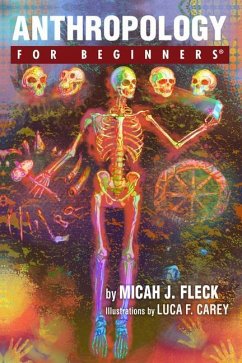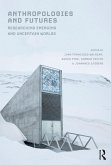Anyone living today could form the impression that humanity is essentially fractured and fragmented; that we're split up along ethnic, geographic, cultural, national, and ideological lines. This is the societal reality. But in Anthropology For Beginners, Micah J. Fleck asks us to take a big step backward and look at the full picture, as if we were aliens who stumbled upon planet Earth and glimpsed its inhabitants. We would see a myriad of languages, practices, religious rites, food palettes, clothing styles, and leisure activities--all of which belong to the same curious species: Homo sapiens. Where did it come from? How did it develop so many different ways of being? And most importantly, what do its members have in common? Anthropology is the field that sets out to answer these questions. Micah J. Fleck provides a history not only of humankind, but of anthropology itself--giving anyone with an interest in the subject a solid background of its key figures and developments.
Hinweis: Dieser Artikel kann nur an eine deutsche Lieferadresse ausgeliefert werden.
Hinweis: Dieser Artikel kann nur an eine deutsche Lieferadresse ausgeliefert werden.








